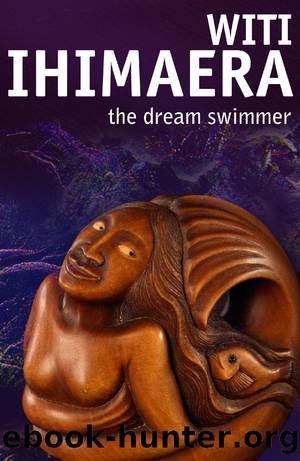The Dream Swimmer by Witi Ihimaera

Author:Witi Ihimaera [Ihimaera, Witi]
Language: eng
Format: epub
ISBN: 9781742288697
Publisher: Penguin Random House New Zealand
Published: 2013-04-08T00:00:00+00:00
Twenty-five
âGlory be to thy Holy name.â
âOne of these days,â my friend John Robertson said, âsomebody will investigate the connection between Maori activism, Black Power gangs and the Ras-tafarians of the East Coast. When you think of how strong the gangs were in those days â Black Power, Nomads, Headhunters, Highway 61, King Cobras and others, with chapters throughout the country â it is no wonder that Chris thought himself invincible. I doubt that he had any notion whatsoever that things were coming to an end.â
Kara was in jail at the time Luke Donnelly arrived in Ruatoria.
Donnelly was born in Ruatoria, adopted by Sophie Haereroa, and lived in Ruatoria in the mid-1950s. As a young man, he moved to the Waikato where he played and coached league. He married Elizabeth and had two children, Jason and Jessica. He owned a small clothing factory in Hamilton. He was no angel. He had a conviction for assaulting a rugby league referee and was known as a man who was happy to settle scores with his fists. He was mentally and physically tough. Powerfully built, quietly spoken, he inherited the Old Testament principles of his adoptive mother and saw things in black and white. Once he made up his mind, that was it. âI will always stand up for what I believe in,â he said.
Then in February 1989 he was told Sophie Haereroa was ailing. He returned to her 20 hectares of sheep country about 15 kilometres south-west of Ruatoria on the main road at the junction of the road through the Makarika Valley. His return was unusual at a time when many people were sick of the violence and were leaving.
Sophie Haereroa died that year and was buried on the farm.
âKororia ki to Ingoa tapu.â
Almost as soon as Luke Donnelly settled, the simmering feud with the Rastafarians began. It was fuelled by the proximity of Willy Campbell, Karaâs father, who owned the adjoining property. Willy was an uncle of the adopted father who had brought Donnelly up. They were all whanau. Willyâs son Joe and Rastafarian friends would either stay or visit. Not only that, but not far along from Luke Donnellyâs property, along the Makarika Road, was an old farmhouse known as the Rasta Pad.
Donnelly was struggling to upgrade the farm. He also set about leasing more land and doing contract work for other district farmers. Given his moral code, he was disgusted by the Rastafarian lifestyle, the way they flouted the law and used the Bible to justify their cannabis habit. The police efforts to limit the cannabis industry were, he thought, laughable.
Donnelly told the Rastas he would not tolerate dope growing on his land, let alone the crossing of it. Neither could they graze horses on his property. Donnelly also believed the gang were stealing his stock; one hundred and forty-eight sheep over the period of the feud, by his reckoning. He warned them to stop. He also warned them to stop cutting his fences. Donnelly wasnât having any of it.
Download
This site does not store any files on its server. We only index and link to content provided by other sites. Please contact the content providers to delete copyright contents if any and email us, we'll remove relevant links or contents immediately.
Closer to the Dead by Scott Hunter(1119)
Edenton 02 Carolina Isle by Jude Deveraux(978)
The Unwanted Marriage: Dion and Faye's Story (The Windsors) by Catharina Maura(908)
Hidden Truths: A Broken Hero Mafia Romance (Perfectly Imperfect Book 3) by Neva Altaj(819)
This Changes Everything by Jennifer Ashley(786)
The Guest by Emma Cline(776)
Wait for Me by Samantha Chase(706)
Vital US #2 by Unknown(701)
Playground by Richard Powers(691)
Bad Uncle: A Taboo Story by Natalie Knight(677)
The Tycoon's Marriage Exchange by Elizabeth Lennox(602)
Highest Bidder by Sara Cate(555)
Right Man, Right Time by Meghan Quinn(501)
Healing His Heart: A Smalltown Romance (Hearts of Fern Hollow Book 2) by Avery Snow & Cordelia Owens(496)
Reason to Believe by Rebecca Yarros(494)
Romantic Comedy by Curtis Sittenfeld(485)
A Talent for Murder by Peter Swanson(466)
Deadline by Metsy Hingle(465)
The Escort Book 1 (BILLIONAIRE BROTHERS) - a HOT erotic menage short (The Invitation) by Jordan Lucia(462)
